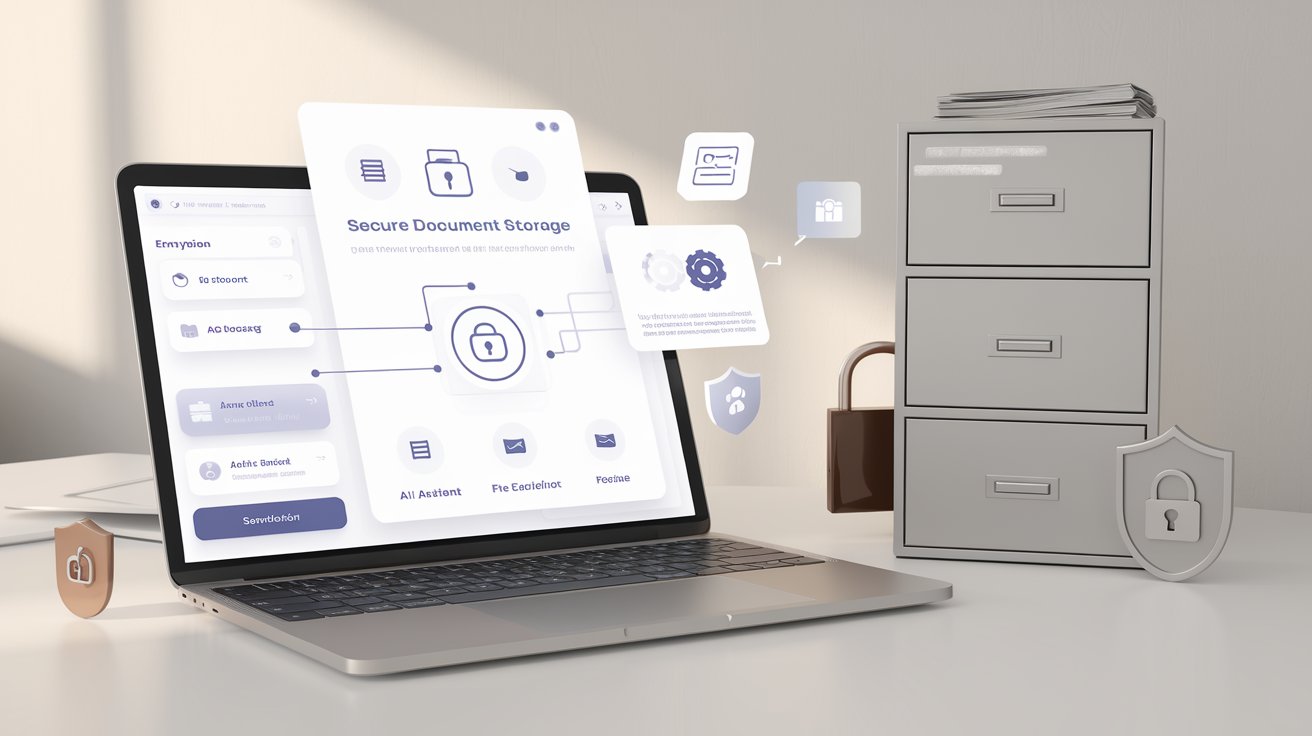Oct 26, 2024
Managing sensitive documents such as contracts, invoices, and financial statements is crucial for small businesses. Failure to secure these confidential business documents can result in data breaches, legal issues, and a loss of client trust. Unfortunately, many small businesses lack the resources or knowledge to properly protect this sensitive information.
In this guide, we’ll explore common challenges in document security and provide actionable strategies for safeguarding confidential business documents while ensuring compliance with industry regulations.
Current Challenges in Document Security
For small businesses, protecting sensitive documents can be more challenging than it is for larger organizations with dedicated IT departments. Common security challenges include:
Limited Resources: Small businesses often lack the resources to invest in advanced security measures.
Data Vulnerability: Storing sensitive information on physical documents or unprotected digital systems increases the risk of data breaches.
Inconsistent Practices: Without proper security protocols, businesses are vulnerable to human error and cyber threats.
Why Small Businesses Are Vulnerable
Smaller budgets may lead to outdated or insufficient security measures.
Employees may lack adequate training on handling sensitive information securely.
Cybercriminals often target small businesses, assuming weaker security defenses.
Essential Document Security Measures for Small Businesses
To protect sensitive documents, small businesses must implement a combination of physical and digital security solutions.
Physical Document Security
Locked Cabinets: Ensure all sensitive documents are stored in locked cabinets or rooms to prevent unauthorized access.
Shred Unneeded Documents: Use a shredding service or in-house shredder to securely dispose of unneeded physical documents.
Digital Security Solutions
Document Encryption: Encrypt all digital files to safeguard them from unauthorized access.
Secure File Sharing: Use secure file-sharing services that offer end-to-end encryption for confidential document transmission.
Employee Access Controls
Limit access to sensitive documents based on job role and need-to-know principles. Implement multi-factor authentication (MFA) for access to critical systems.
Best Practices for Managing Confidential Business Documents
A structured approach to document management is crucial for maintaining document protection and operational efficiency.
Document Classification System
Categorize documents based on their sensitivity level—such as “Public,” “Confidential,” and “Highly Confidential”—to ensure they are treated with the appropriate security measures.
Secure Storage Solutions
Use digital document storage with robust encryption for storing sensitive information. Solutions like Filecentral.io provide secure cloud storage options to manage, organize, and protect your files.
Backup Procedures
Regularly back up sensitive business documents to a secure, off-site location. Opt for automated cloud backups to ensure up-to-date copies.
Digital Document Management Solutions
Digital solutions offer more advanced security and flexibility for managing sensitive business documents.
Cloud Storage Options
Cloud storage providers such as Google Drive, Dropbox, and Filecentral.io offer secure, scalable solutions with encryption and backup capabilities tailored for small businesses.
Document Management Software
Invest in document management software that allows you to organize, store, and manage contracts and invoices securely. Look for platforms with user permission settings and audit trails.
Encryption Tools
Use encryption tools to protect sensitive documents both in storage and during file transfers. Services with automatic encryption ensure your data is secure at all times.
AI-Driven File Management: The Future of Document Security
Artificial Intelligence (AI) is rapidly transforming how businesses manage and secure their documents. For small businesses, AI-powered tools offer significant advantages in efficiency and protection.
AI-Powered Document Organization
AI can automatically classify and categorize files based on their content, making it easier for businesses to manage large volumes of documents efficiently. For instance, platforms like Filecentral.io use AI to categorize documents intelligently, making retrieval fast and seamless.
Smart File Recommendations
AI can identify connections between documents that might not be immediately apparent to human users. For example, AI-driven tools can suggest related contracts or invoices when working on specific files, improving workflows and minimizing errors.
AI-Powered Document Search
Instead of manually searching through folders, AI-enabled tools allow users to simply ask for a document using natural language. Filecentral.io's AI feature, "Ask AI," allows businesses to instantly find and retrieve sensitive documents with ease, enhancing productivity.
Proactive Security Alerts
AI-driven systems can monitor document access and usage patterns to identify unusual behavior. If an unauthorized user tries to access a sensitive file, the system can flag it as suspicious, helping to prevent data breaches in real time.
Legal Compliance and Document Retention
Small businesses must comply with various industry regulations to avoid legal penalties.
Industry Regulations
Familiarize yourself with data protection laws such as GDPR compliance for small businesses, HIPAA (if handling health-related data), and other relevant regulations.
Retention Schedules
Develop a document retention policy that dictates how long different types of documents must be retained to stay compliant with industry standards.
Compliance Checklist
Ensure regular audits of document security practices to maintain compliance with legal requirements.
Cost-Effective Security Solutions for Small Businesses
Security doesn’t have to break the bank. Small businesses can implement several cost-effective strategies.
Free and Paid Tools
Many tools offer both free and premium options. For example, platforms like Filecentral.io provide affordable document management solutions for small businesses.
Risk Assessment Strategies
Regularly perform risk assessments to identify weaknesses in your document security and prioritize areas for improvement.
ROI of Security Measures
Investing in secure document management reduces the risk of costly data breaches and protects your business’s reputation, providing a strong return on investment.
Data Breach Prevention and Response
Preventing data breaches is essential, but having a response plan is just as critical.
Common Security Threats
Phishing attacks, malware, and ransomware are common threats to small business document security.
Prevention Strategies
Use antivirus software, firewalls, and encryption to protect your data from unauthorized access. Regularly update software to patch vulnerabilities.
Emergency Response Plan
In the event of a breach, implement your emergency response plan to mitigate damage and notify affected parties in compliance with legal obligations.
Conclusion
Managing sensitive business documents doesn’t have to be overwhelming. By implementing the right security measures, such as encryption, secure file storage, and employee training, small businesses can safeguard their confidential information and ensure long-term success. Start by assessing your current document security practices and take advantage of tools like Filecentral.io to securely manage your contracts, invoices, and other essential documents.
Smart, secure, and scalable file storage for all your needs. Manage and access your files effortlessly with AI-powered tools.
Simplify Your File Management
Filecentral



